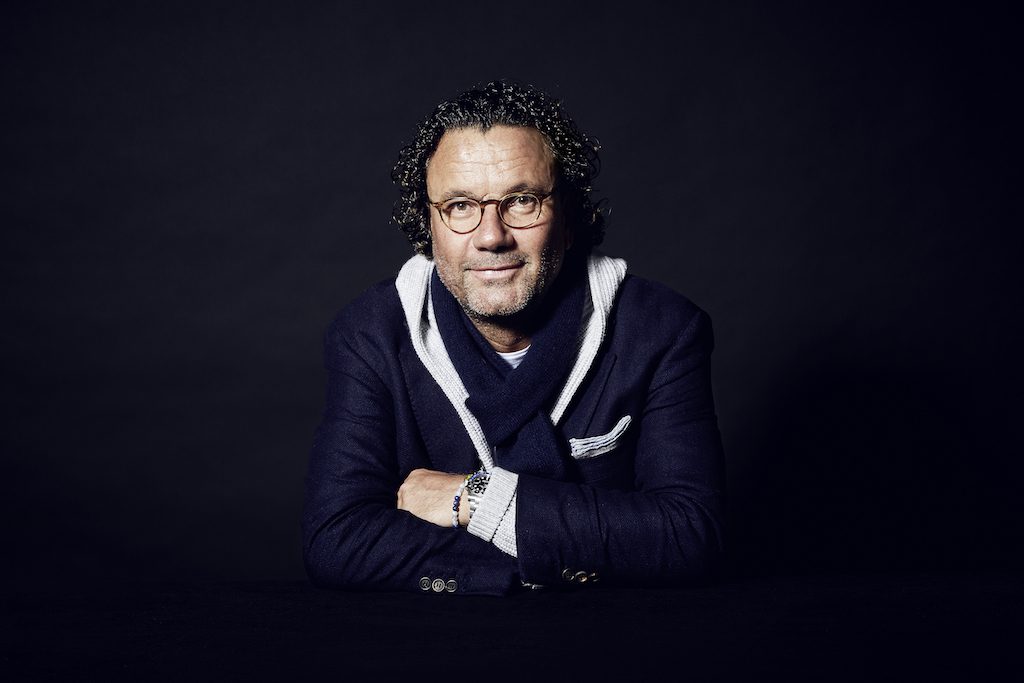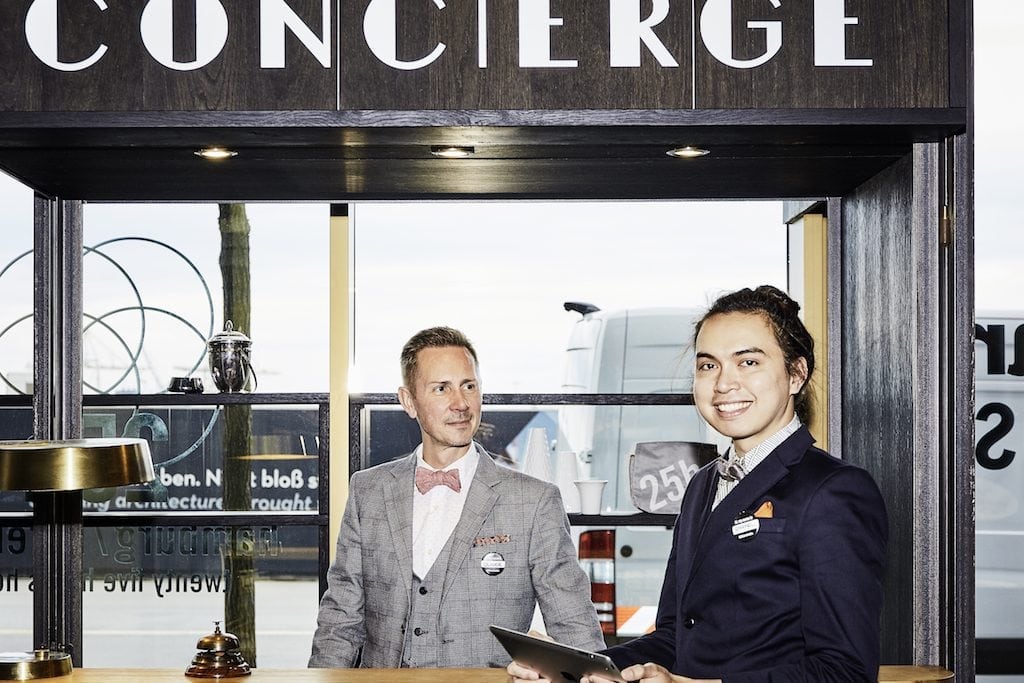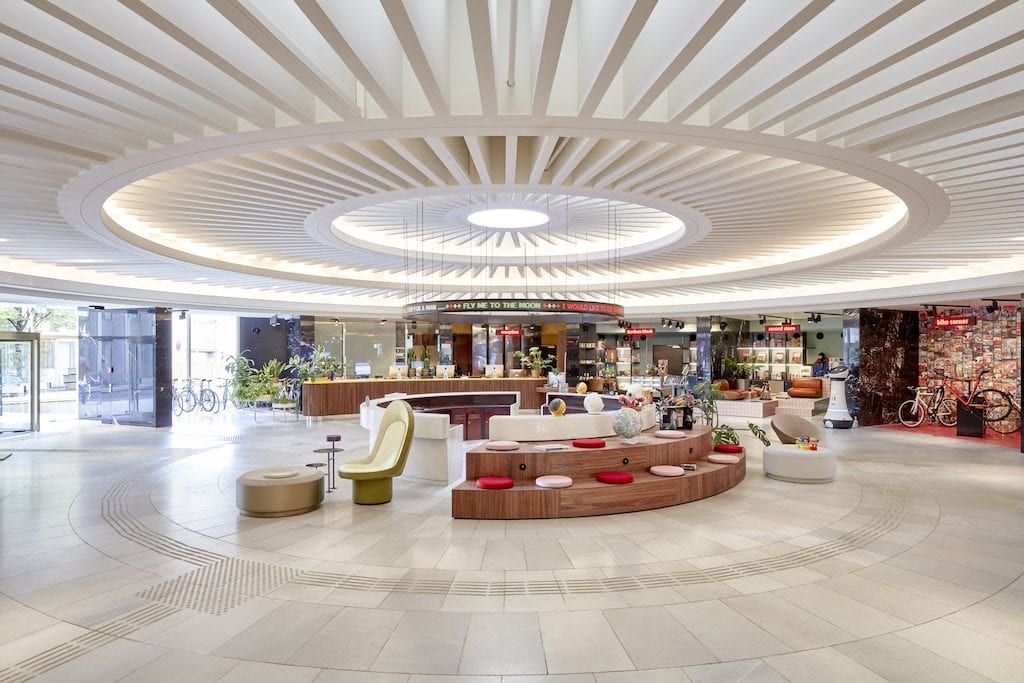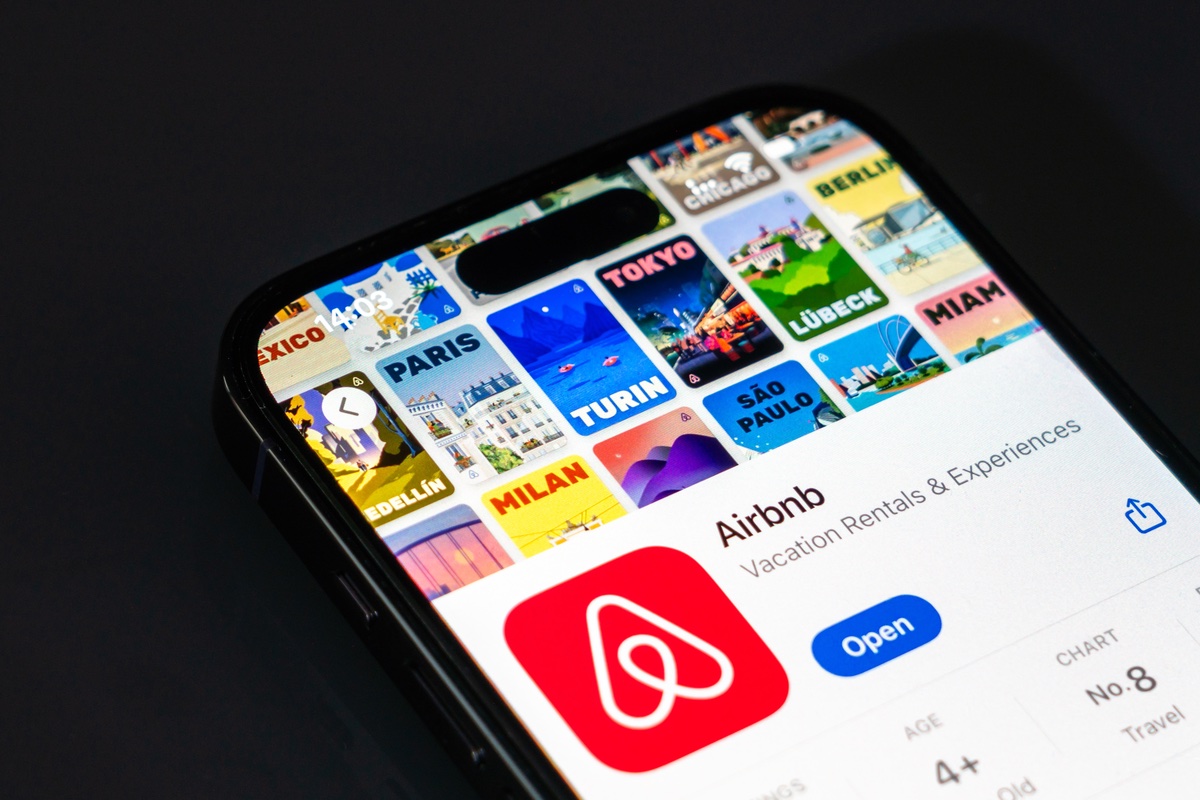Co-Living and Co-Working Are Gimmicks, Declares 25hours Hotels CEO

Skift Take
You might think that the co-founder of a lifestyle hotel brand like 25hours might embrace emerging hospitality concepts such as homesharing, co-living, and co-working.
But for Christoph Hoffman, CEO of Hamburg-based 25hours Hotels — even though those ideas might be dominating chatter among investors and developers — there’s a danger in everyone chasing the same trends.
“Everybody’s jumping on the same train, and it becomes, to me, funny and maybe also dangerous in some areas, because too many people are doing the same thing,” Hoffman said. “Then it repeats itself and everyone has the same kind of product.”
While he thinks of co-working as “interesting form a hospitality point of view” he also believes hoteliers should simply “create a hotel product which is more dedicated to the local crowd, or to the community who is using a city like New York or Dubai on a frequent basis.”
A guest, Hoffman explains, “is renting the entire space,” so why not offer him/her “an experience which is the whole hotel?” “That, to me,” he said, “is the third space experience — it’s co-working and co-living.”
As for homesharing, Hoffman said “I think it is dangerous for hotels who don’t offer a real, proper, nice hotel experience where you get really nice F&B [food and beverage], where you have a nice bar, where you have great service by people who are attentive, and where you can also build up a relationship, because if you go to a homesharing place, eventually you will become lonely.”
But while Hoffman thinks hoteliers should focus more on creating great spaces that accommodate co-working and that differentiate the hotel experience from homesharing, that’s also not stopping him and his company from experimenting with a variety of new concepts, from old-school concierge services to robots.
Skift sat down with Hoffman during a recent visit to New York City to ask him about his thoughts on experimentation in hospitality, as well as an update on Accor’s investment in the brand. Here’s what he had to say.

Last fall, 25hours piloted a concierge service to be utilized by locals and hotel guests alike. Source: 25hours Hotels
Always Experimenting
25hours Hotels has an entire laboratory committed to research and development of new hospitality concepts called the Extra Hour Lab, and Hoffman said the lab has helped the company produce and test out a number of different features, from e-commerce initiatives and concierge services for locals to robots.
For example, the company last fall debuted Conciergerie, a concierge concept that was geared to locals and guests alike.
And while “it didn’t boom,” Hoffman said he hasn’t given up on the idea. “I still believe in the idea. We didn’t give up on it. What we also learned is that the concierge service, we made a big thing out of it, and our hotel guests love it and so do our staff at the reception. We’re not a five-start property, therefore it’s unusual to have that full concierge service, but now we can be much more focused on the needs of our guests.”
Conciergerie, in its initial pilot, he said, suffered from not being piloted in the right market, or being marketed appropriately. “You need to be in the right place [for a concept like that to work,” Hoffman explained. “I don’t think Germany is the right place for doing that, because it’s not an expat community; it’s not a huge international community.”
He also chalked up the lukewarm response to Conciergerie to marketing. “How do you inform people in the whole neighborhood about the service?” he said. “There’s a certain reluctance from the German guest because they’re not very open-minded toward all those services.”
As for ultimately integrating Conciergerie into something like the AccorLocal mobile app, he said “it’s a perfect example for one of the synergies” between Accor and 25hours. “It should be something where we could work on stronger. I think we need patience. I don’t like to give up things only after a few months or one year. People need to understand the concept behind it, and we will be working on it.”
He said that, going forward, a “digital backbone” will be added to the Conciergerie concept to help people get and forward information, but that “the main point of contact should be a human being,” which seems directly juxtaposed against another new concept 25hours is currently testing: a robot in the lobby of its hotel in Cologne, Germany.
“People love it,” Hoffman said, especially since it’s a “playful robot,” but he’s also wondering if it’s worth the monthly $1,811 investment.
“It’s between the gimmick phase and something which becomes a bit more useful,” Hoffman said. “We have to make up our minds, if we invest more money into it, because it’s quite expensive to make him intelligent.”
Another concept Hoffman wants to explore further with the hotels is how to develop a more comprehensive e-commerce or retail presence for the brand.
“We have to be stronger in selling things to our guests which they experience at our hotel,” he explained. “We’re trying to sell the unique world of 25hours,” he continued, even noting the possibility of selling a furniture line at some point.
And in many ways 25hours' strategy of constantly testing out new things mirrors that of one of its major stakeholders: Accor.
“Sebastien’s way of business,” Hoffman said of Accor CEO Sebastien Bazin, is to “try things out, speed them up, buy things that are interesting, know that some of them will fail and other will succeed.”
It’s that same trial-and-error approach that Accor has had with some of its more challenging acquisitions and investments, such as luxury homesharing platform Onefinestay and luxury concierge services provider John Paul.
Of those deals, Hoffman said he wonders “if they invested a little bit too late into something which is already covered by Airbnb” with Onefinestay. “I think everybody else might play a role as a niche player, but if you want to have a certain niche, you have to focus more and that’s what they were trying to do with more upscale and luxury product in Onefinestay. To me, it’s like Airbnb has taken the whole market and everybody else is trying to follow.”
As for John Paul, Hoffman said he’s a big fan of the service itself, but wonders if it’s best being more limited to Europe because it’s a kind of service that’s hard to scale globally, he explained.

The lobby of the 25hours Hotel in Cologne, Germany, where the brand has recently piloted a lobby-based robot. Source: Steve Herud for 25hours Hotels
Accor’s Investment
In 2016, Paris-based Accor made a strategic investment in 25hours Hotels by taking a 30 percent stake in the company, primarily with the intent of growing the brand worldwide.
Three years later, Accor now has the opportunity to raise its stake in 25hours from 30 percent to 50 percent and Hoffman thinks it’s likely that Accor will want to do so, although it’s not a done deal.
Hoffman, for one, hopes Accor does decide to increase its stake in 25hours for a number of reasons, one of which is that if Accor does do so, 25hours will also finally benefit from Accor’s negotiated rates with online travel agencies.
When asked if the brand has expanded at the pace he’s wanted to, Hoffman said, “Yes,” but added, “Accor, maybe no. If you asked Guarav Bhushan, [Accor’s head of global development], he would be even more happy if we had more projects.”
Since 2016, 25hours has opened an additional six more properties and has three more hotels on the way, including one in Dubai that represents the brand’s first hotel project with Accor from start to finish and its first franchise-model project for a hotel of 435 rooms where Accor, and not 25hours, will be the main operator.
“It’s going to be an interesting experience to see how we can translate and how we can also make or bring our culture to the world of Accor,” Hoffman said. “We need to make sure that the staff takes the idea, takes the philosophy, takes the culture of 25hours via somebody else, who’s going to manage the whole place.”
Hoffman is “very optimistic that it will work out fine” given the relationship 25hours has had with Accor the past few years. Accor’s new “augmented hospitality” strategy and its new loyalty program are especially promising, he noted.
And one thing he isn’t concerned about is the fact that Accor is investing in a number of other brands, some of which are direct competitors to 25hours, too.
“We have kind of a competition when it comes to owners who are choosing different brands within the Accor world,” he said. “To be frank, I’m relieved, in a way, as well, because we are not about speed. We’re more about trying to create products where we are very optimistic and where we strongly believe that we can do something nice. We’d rather only do three properties in three years than do 10 properties in three years.”
He said he’s hoping there are synergies to be shared among the various brands within the Accor family, including SBE. “Let’s say we find something in San Francisco or Singapore, and our own F&B brands don’t fit there, or we don’t have the resources to develop our F&B brands in that long-haul destination. We can give Sam [Nazarian, the CEO of SBE] a call and see if he has a brand which fits our philosophy.”
The Future of Hotel Dining
Like Nazarian, Hoffman sees the power of branded concepts in hotel dining, but he said it’s important to make sure that those restaurants and bars still at least feel like a neighborhood establishment that’s “very cozy and personal feeling.”
Essentially, anything that “avoids having those technocratic, stupid, cookie-cutter scaled gastronomic brands” is what hotels should seek out, he said.
Focusing on Labor
And if there’s one thing he thinks hoteliers should be paying more attention to than they currently are, it’s the people who make their businesses possible.
“We forgot about it, especially myself,” Hoffman admitted. “We never had a strategy behind how we can make sure that our staff stays with us, and becomes happy, and becomes also loyal to us. We had a high fluctuation in the past, and we just grew. We just thought, ‘OK, somebody comes to us working, they must be happy and they must like and then we were hoping that everything would work out, but the larger the organization go, the more difficult it was to keep the balance and to keep that vibe and culture.”
To fix that, Hoffman said the company expanded its human resources department and is actively trying to empower and incentivize employees, as well as increase their pay, recognize their efforts, listen to them, and show the company’s appreciation for their work.
“It’s very important that we give feedback to them, that everybody within the hotel understands what the growth is about, what Accor is about. You have to discipline yourself about it, and the larger the organization gets, the more decentralized that system has to be so the culture can go all the way though.”




